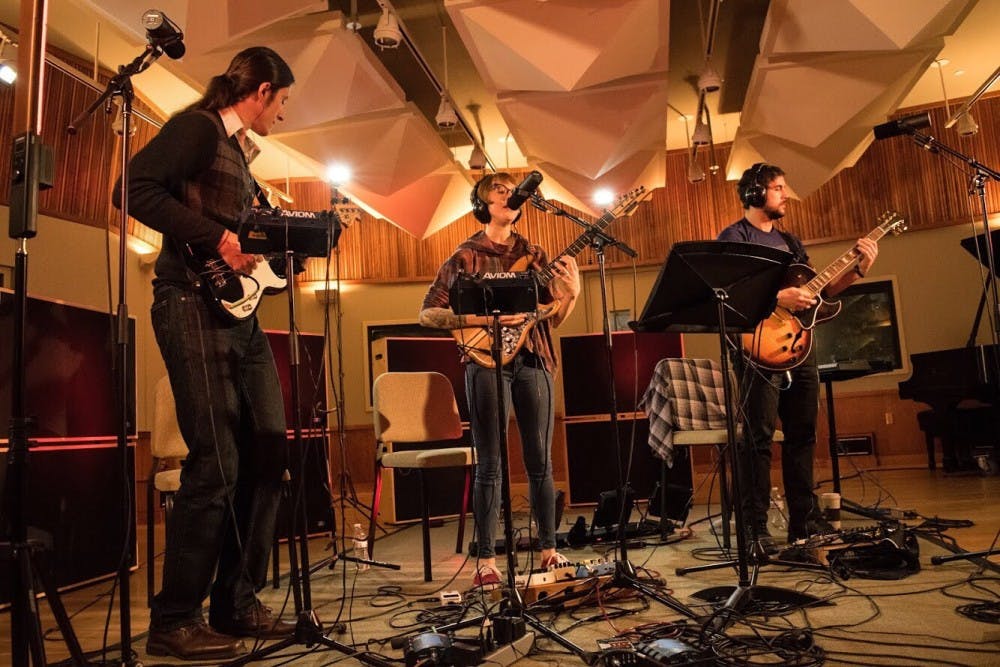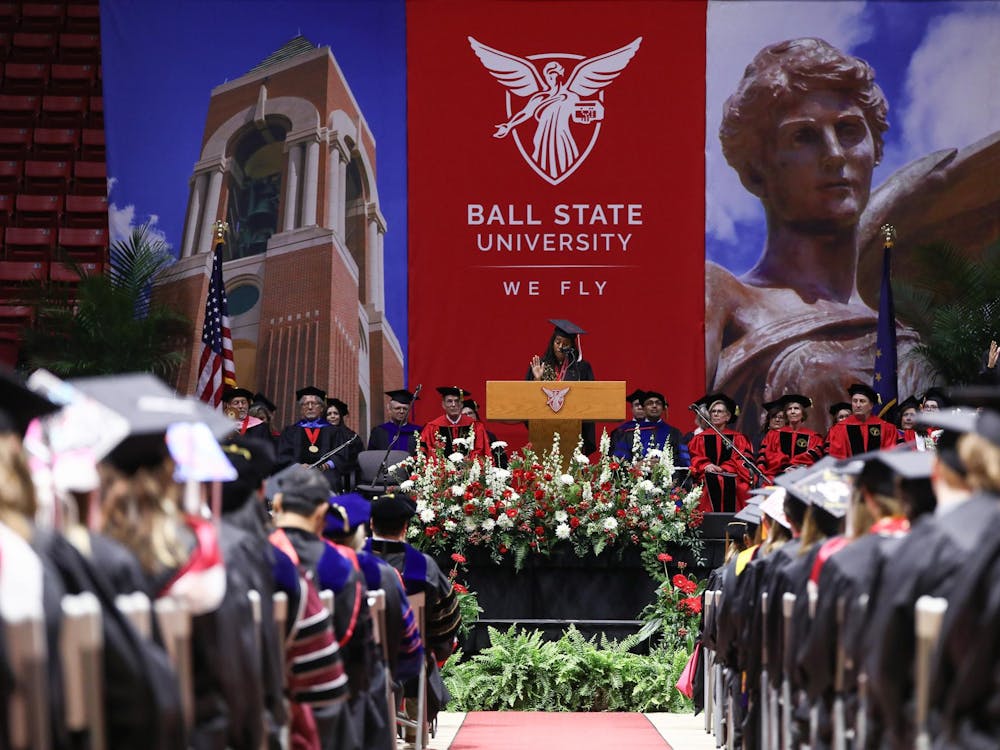Indianapolis is “on the cusp of becoming a music city,” or at least, that’s what one Ball State instructor has experienced.
After working at Ball State and being involved with musicians in Indianapolis through organizations like the annual music festival Tonic Ball, Daniel Porter, instructor of music media production and industry, was inspired to find a way to connect the two.
Eventually, he developed the immersive learning project Beneficence Records, which gives students the opportunity to be part of all the steps involved with creating an album.
“Beneficence Records has two goals, first and foremost is to support a charity or a nonprofit social cause that needs support,” Porter said. “The secondary goal is to create that helpfully precarious learning environment where the students are doing all of the work but also feeling all of the real pressure.”
Beneficence Records is “uniquely charity driven” because it partners with Tonic Ball and Second Helpings. Each year, Tonic Ball holds a concert featuring different artists in order to raise money for Second Helpings, a charity that works toward preventing unnecessary food waste and uses leftover food to feed those in need.
Porter decided to use his connection with Tonic Ball to find artists to record the songs on the label’s first record, Records for a Reason Volume 1: Second Helpings. Ninety percent of the profit raised by the record sales will be donated to Second Helpings.
First, however, Porter had to complete the necessary steps toward funding and creating an immersive learning class.
Porter applied to become a Virginia Ball Center Fellow, and once approved, he was provided with funding and support to make Beneficence Records a reality.
The music department granted Porter a “mini sabbatical” so he could focus solely on Beneficence Records, and he then worked with the university to tailor the class to fit into each students’ four-year plan.
To give students the proper amount of time to create the record label, the class counted as 12 to 15 credit hours instead of three.
When recruiting students, Porter first reached out to different departments throughout Ball State and conducted interviews based on departmental suggestions.
The 15 students who were selected to create Beneficence Records and its first album had many different tasks that required the application of skills they had learned throughout their majors.
For senior music media production major Abigael Black, working with Beneficence Records felt more like a job than a class.
Black said the students would meet several times a week to make sure their main goals for each week were clear, and then they would split up into different groups to tackle all of the different elements of the project.
The group had many different responsibilities, including reaching out to artists, scheduling recording times, creating music videos, filming a documentary, choosing what songs would be on the album and deciding the order of the songs.
While Black was mainly involved with working with artists and social media, she said she was able to step outside of her comfort zone and learn things she never pictured herself doing.
“I didn’t know how much more I would be doing on top of marketing and it was really cool, really interesting, because I’ve never had to work with anyone outside my major,” Black said. “When you get in your own major — and especially being a senior — you live in a bubble, like, all I know is the school of music, this is what I have to do. So, when [other students and artists] came into the studio and I just saw all of the different things that go into producing one thing, it was just eye-opening.”
Facing real-life deadlines and consequences was another one of the hurdles the students faced when working on the project.
“I learned just how stressful it can be trying to work with people in a real-life setting where real deadlines matter and the effects of unmet deadlines aren’t just a poor grade on your transcripts,” said Brandon Gick, senior telecommunications sales and promotions major.
Porter said the students had a large amount of responsibility on their shoulders because each decision they made would reflect back on all of their partners, and they had to make sure they were properly representing all of those involved in the project.
During the semester, the class also visited Second Helpings to see the impact their work was going to make on the community.
“We went down and volunteered at the Hunger Relief kitchen and rescued some of the food, and once they really saw what was going on and saw how it was impacting the artists, and saw the quality of artists that we’re really working with too — you know the professional level of music thats coming out of Indianapolis — they were all in,” Porter said. “They started bringing new ideas and bringing more than I could have possibly come up with on my own to the table and just knocking it out of the park.”
While Beneficence Records has officially released its first album online, it is currently pre-selling vinyl copies of the album.
At the album release party, the group was able to make about $1,000 in record sales, and hopes to continue to raise money for Second Helpings throughout the summer and at the 2018 Tonic Ball.
“Creating something like this is the first time I’ve really seen my students dig in deeply and, you know, even students that are graduated want to come back next year to the next Tonic Ball when we’re selling the records and recruiting the next artists,” Porter said. “[Students are] saying, ‘Yeah, I’m going to fly back from wherever I’m at and I want to see this keep going.’”
Because of what he was able to learn from Beneficence Records, Maxwell Denari, a junior magazine journalism student, said he is looking forward to returning next semester.
Both Black and Gick also plan to return to work on the next album, which will be created during a three credit hour class next fall. Porter is currently looking for students for the next class.
“It was demanding, it was a lot to take on at first,” Denari said. “Then we all melded into our roles and it felt so natural. We all developed pride in the work we were doing, the experiences we were garnering. So, it had its hardships, but we all pulled together our combined talents and we came out with a very cool product, one we can be very proud of.”
Contact Brooke Kemp with comments at bmkemp@bsu.edu or on twitter @brookemkemp.





